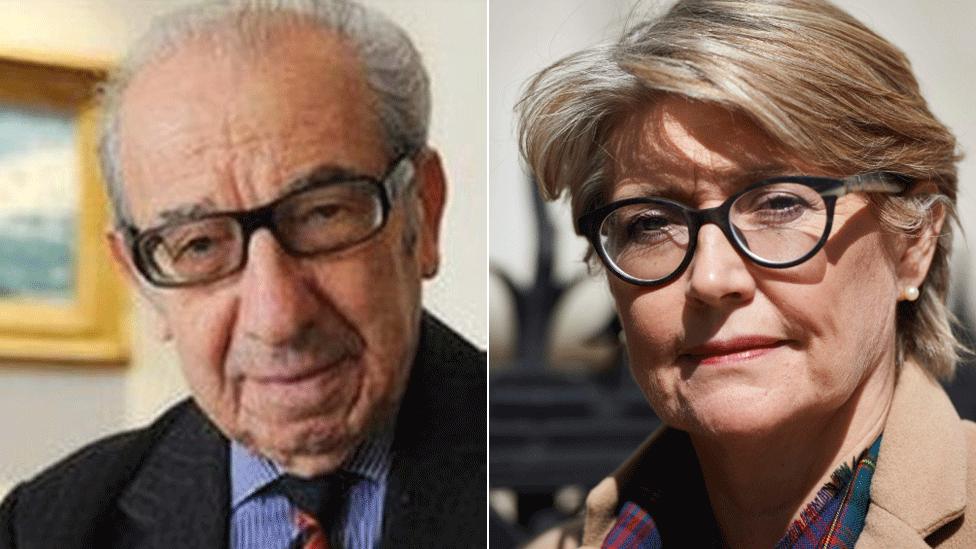EU referendum: Britons abroad lose vote legal bid
- Published

Harry Shindler and Jacquelyn MacLennan want their say over whether the UK stays in the European Union
Two Britons living abroad have lost a High Court battle over the right to vote in June's EU referendum.
The legal challenge was brought by World War Two veteran Harry Shindler, 94, who lives in Italy, and lawyer and Belgian resident Jacquelyn MacLennan.
Under law, UK citizens who have lived abroad for more than 15 years cannot vote.
But the pair argued the in-out vote on EU membership directly affected them and called for a judicial review.
They asked the two judges to declare that section two of the EU Referendum Act 2015, which established "the 15-year rule", unlawfully restricted their right to freedom of movement under EU law.
But the judges ruled that the section did not restrict their rights and rejected their application for judicial review.
How to cope with EU family splits
Lawyers representing the pair say they will seek leave to appeal to the Supreme Court against the judgment.
Mr Shindler told the BBC: "Like during the second world war, we might have lost the battle but we will win the war in the end."
Richard Stein, from the law firm Leigh Day, said he would fight for all British citizens living elsewhere in the EU to vote in the referendum which will have "a very real impact" on their lives.

Who is currently eligible to vote?

British, Irish and Commonwealth citizens over 18 who are resident in the UK
UK nationals living abroad who have been on the UK electoral register in the past 15 years
Members of the House of Lords and Commonwealth citizens in Gibraltar, unlike in a general election
Those eligible can register to vote here., external

'Arbitrary' cut-off
Earlier this month, the court heard up to two million expats were being denied the right to take part in the referendum.
Mr Shindler - who has lived in Italy since 1982 - and other campaigners argue the 15-year cut-off is arbitrary and that rules governing UK general elections, the basis for the referendum franchise, are not being applied evenly.
His lawyers say the EU Referendum Act extends the right to vote to peers, and to Gibraltar residents who would not normally be able to take part in general elections, but not long-term expats.
Ms MacLennan said: "If British citizens maintained British citizenship, that brings with it rights, obligations and a connection with this country," and choosing 15 years was "like sticking a dart in a dartboard".
But the judges said they did not consider the 15-year rule was arbitrary "in any legally significant sense" and a "bright line rule" was needed to identify a point at which extended residence abroad "might indicate a weakening of ties with the UK".
The government has welcomed the court's ruling and says the franchise was agreed by both Houses of Parliament.
'Resident aliens'
Aidan O'Neill QC, for the expats, told the court a victory for the "Leave" campaign could lead to Mr Shindler and Ms MacLennan becoming "resident aliens" in Europe.
They would no longer be EU citizens and their right to live, work, own property, and receive health care free at the point of use, could be placed in jeopardy, he said.
James Eadie QC, for the government, argued the 2015 referendum legislation did not interfere with free movement rights and was not open to challenge on EU law grounds.
The impact of a "leave" vote on those caught by the rule could not be predicted and a win for Mr Shindler and Ms MacLennan would make it impossible to hold the referendum on 23 June, as planned, he added.
In their manifesto, the Conservatives pledged to scrap the 15-year rule for expats voting in elections. The government says it remains committed to doing so, but stresses that the plan is not connected to the referendum.